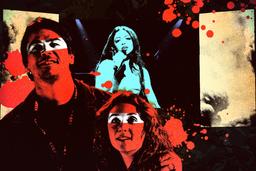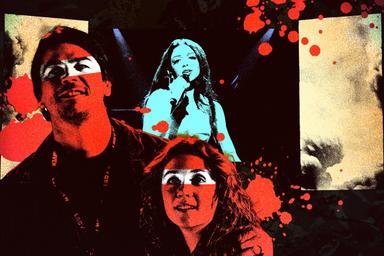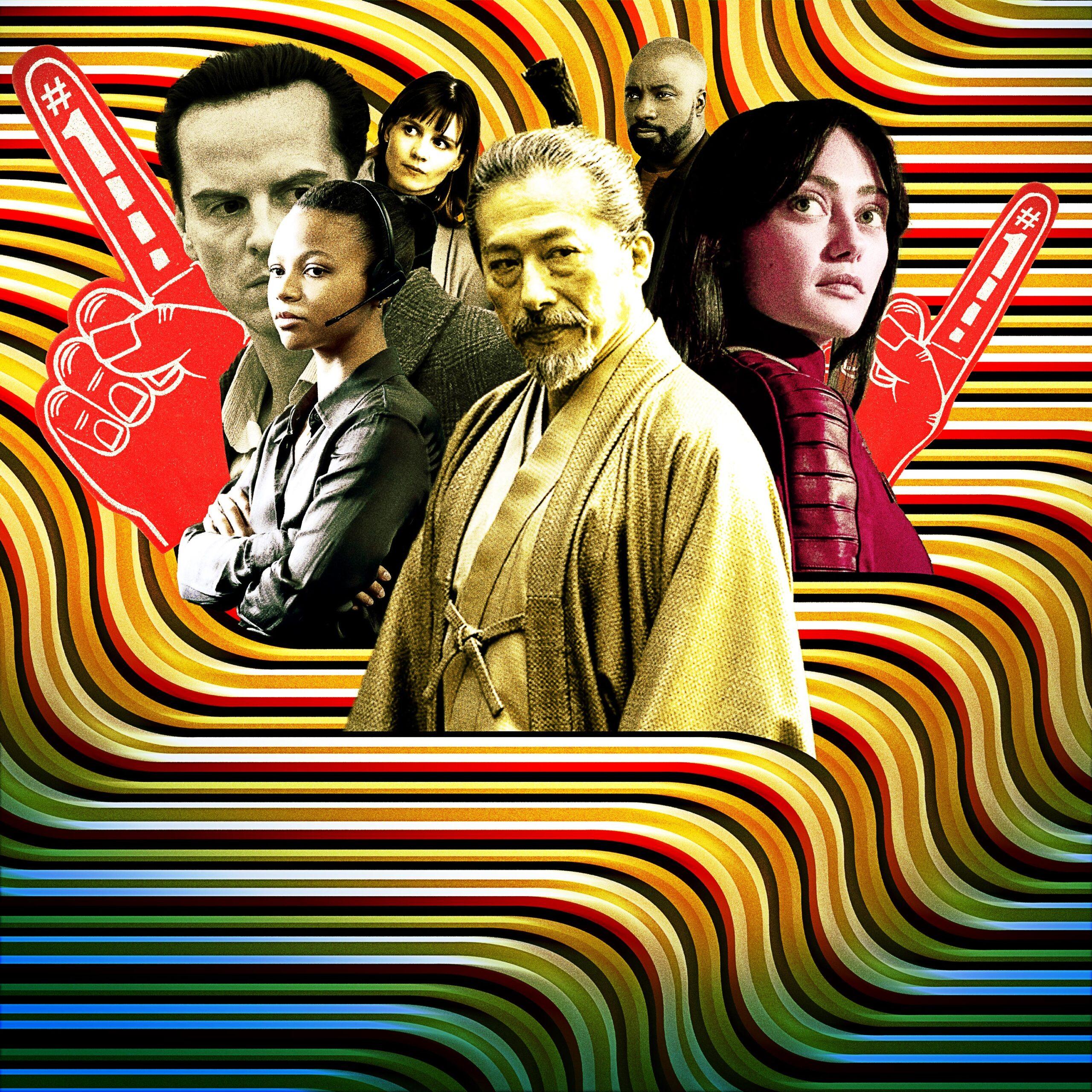Halfway through 2024, I wrote that scary times call for scary movies. Several months later, the sentiment still holds—there haven’t exactly been glimmers of hope, on-screen or off. The growing popular groundswell around Wicked and its broadly progressive, not-easy-being-green themes may be enough to earn it Best Picture, but escapist musical fantasies—even ones about the potential rise of fascism—seem out of place instead of right on time. Even the movies on my top 10 that could be categorized as comedies vibrate with currents of anxiety and anger, while the freakiest selections are each, in their way, bitterly funny. These days, it feels like we’re all Josh Hartnett, nervously checking our phones while pretending to pay attention to whatever is supposed to be entertaining us. The best movies of 2024 were the ones that harnessed ephemeral tensions about good and evil, and also observation and passivity; the most interesting characters were the ones who felt divided against themselves, whether they were splitting their personalities via social media personae or trying to decide whether or not to do the right thing. With this in mind, I second-guessed myself plenty with this list—and you’ll probably second-guess me plenty while reading it. Just know that, as a jury of one, I tried to do the movies I enjoyed justice.
Honorable Mention: Chime
Kiyoshi Kurosawa’s terrifying new short film—which runs just 45 minutes—unfolds in a Tokyo beset by widespread and destabilizing auditory hallucinations. As in the Japanese auteur’s epochal millennial horror masterpieces Cure and Pulse, the world ends not with a bang or a whimper, but with a steady drone of ambient dread, occasionally drowned out by the churn of a garbage disposal. In a year when many of the most notable horror movies came packaged in different brands of nostalgia—from franchise prequels (The First Omen) to prime-time procedural cosplay (Longlegs) to premillennial prime-time melancholy (I Saw the TV Glow)—Kurosawa faces a present tense that seems to be getting away from his characters, and from us as well: The future becomes a vanishing point.
10
Here
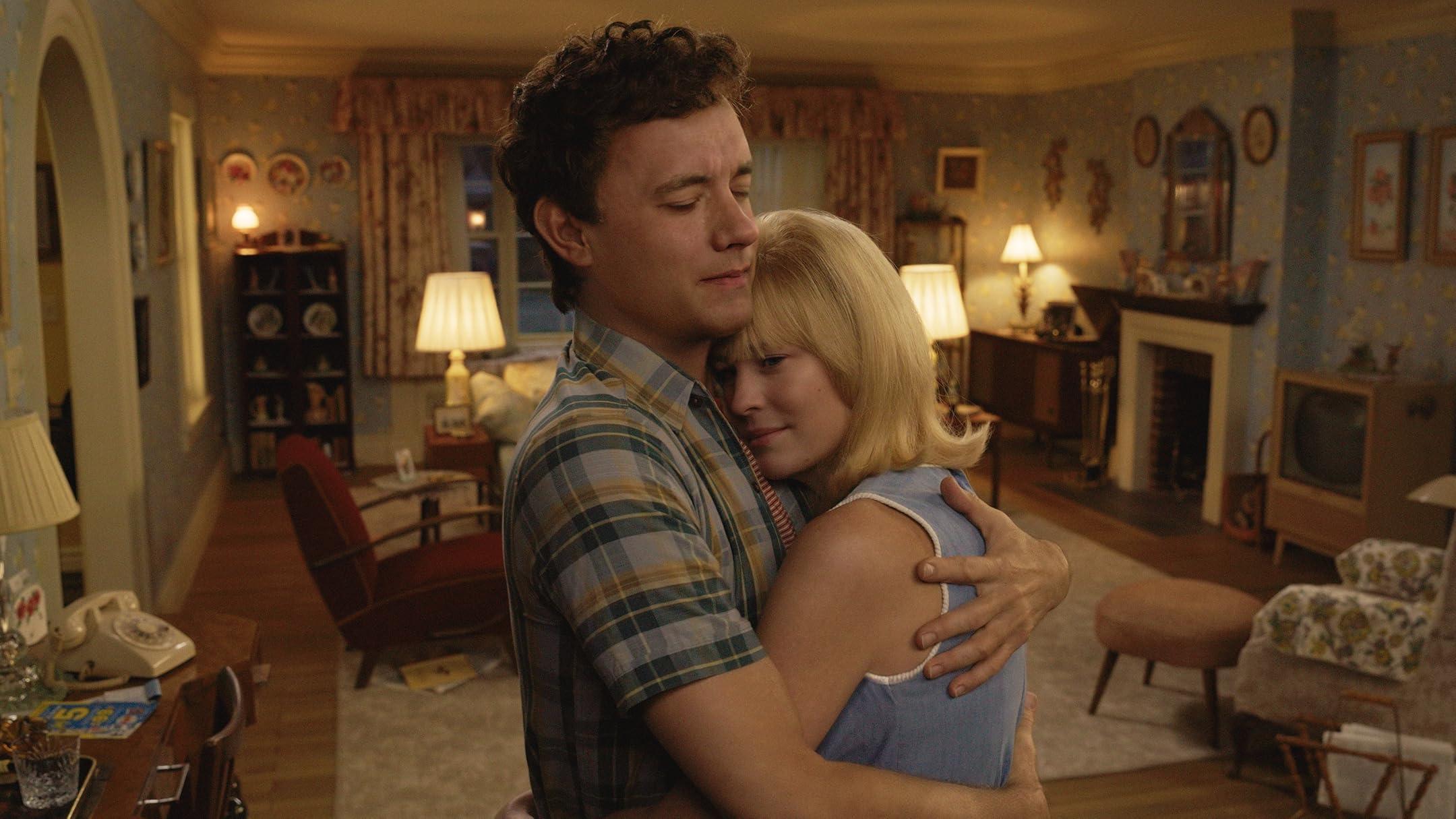
The most divisive, beguiling, and flat-out bizarre elder Hollywood statesman movie of the year wasn’t Megalopolis. Rather, it was Robert Zemeckis’s deceptively flat, quasi-avant-garde graphic novel adaptation Here, which—deep breath—theoretically distills a textbook’s worth of American social, cultural, and political history into one shot from a fixed camera position. Here will surely lose a boatload of money, just like Francis Ford Coppola’s self-financed boondoggle; the bad news—or, depending on how you look at it, the good news—is that at least a major studio will be footing the bill. The collision in Here between its maker’s resourceful methodology and rank emotional manipulation is the stuff that authentically challenging cinema is made of, and Zemeckis, who’s been riding his own personal polar(izing) express straight through the Uncanny Valley of the Dolls for a while now, stages his lament (or is it a critique?) of boomer exceptionalism with implacable precision. He gives us stories within stories, frames within frames, and satire and sentimentality locked together, for better or worse, to have and to hold, until death do them part. There are no heroes in Here, and no victims; the villain is time itself. Which is ironic because no 2024 release is more likely to look like a technical landmark in the long view.
9
Babygirl and Last Summer
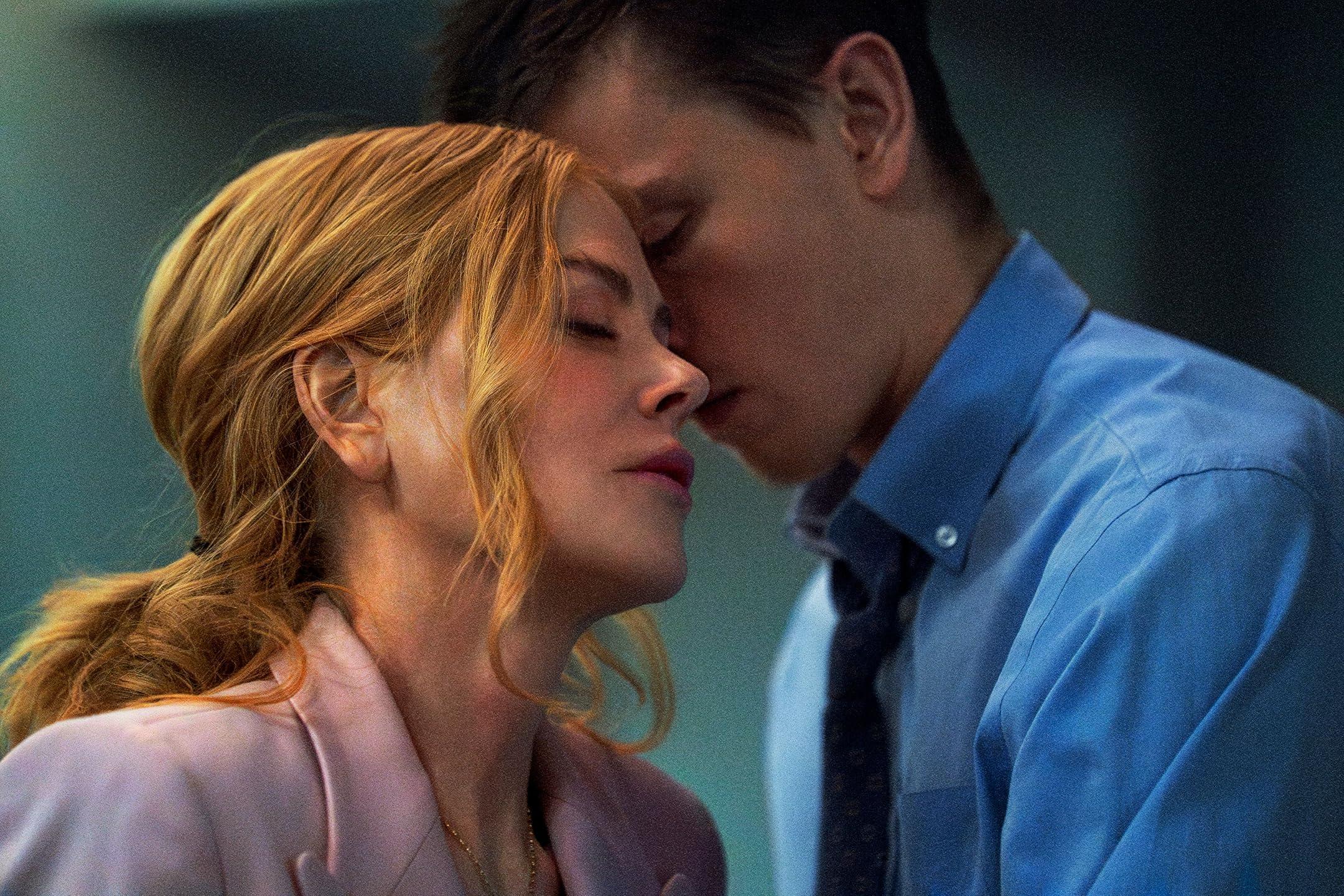
The protagonists of Halina Reijn’s and Catherine Breillat’s sexually charged melodramas are successful and self-sufficient career women who have plenty to lose by sleeping with the much younger men who’ve ended up in their orbit; in both films, questionable judgment and potential self-destruction become forms of foreplay. Where the country house trappings of Last Summer mark it as a distinctly Provence-ial form of provocation—an immersion in the not-so-discreet charm of the bourgeoisie from one of the most uncompromising French directors of her era—Babygirl’s sleek, steel-and-glass Manhattan backdrop nods sardonically toward the sort of glossy studio rom-coms that Nicole Kidman has largely avoided during her own amazing career. Her performance here as a hard-edged CEO exploring her own fetish for subjugation with Harris Dickinson’s sexy intern is a complex marvel of inverted star power that belongs on any hypothetical Oscar ballot. If only we lived in a world where Lea Drucker could compete as well for her merciless work in Breillat’s unsentimental, quasi-incestuous scorcher, which has the year’s best and bleakest final line.
8
Trap
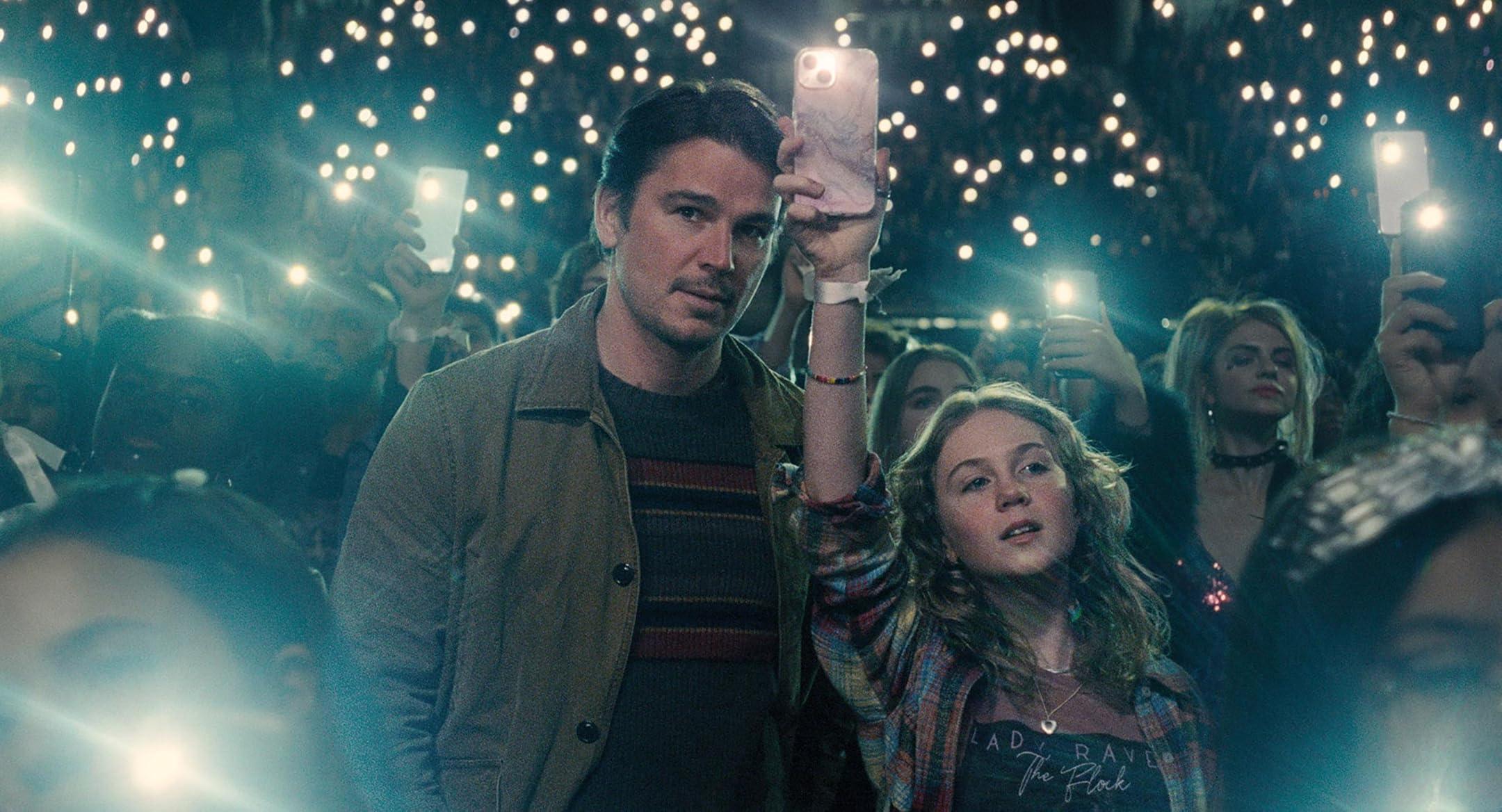
We all go a little dad sometimes. In his most Hitchcockian movie ever—and, not uncoincidentally, his funniest as well—M. Night Shyamalan allegorizes the compromises and compartmentalization of American patriarchy through the character of a mass murderer who’d do anything for his precious little girl, including standing awkwardly at her side at a sold-out pop concert. As its title suggests, Trap unfolds as an exercise in encroaching claustrophobia, with the twist (and, with this filmmaker, there is always a twist) being that coloring inside the lines of genre offers its own sort of liberation. Nobody makes weirder and more personal mainstream movies these days than M. Night, and we’re richer for it. The moment when Josh Hartnett’s all-American sicko asks his kid whether she wants to sneak a peek in the stadium basement—“Wouldn’t it be unbelievable to see what’s down there?”—is hilarious because it’s horrifying, and vice versa. “You’re acting strange,” says the daughter. “Is something wrong, Dad?” That our man doesn’t even know how to begin answering that question suggests the depth of Shyamalan’s satire.
7
Evil Does Not Exist
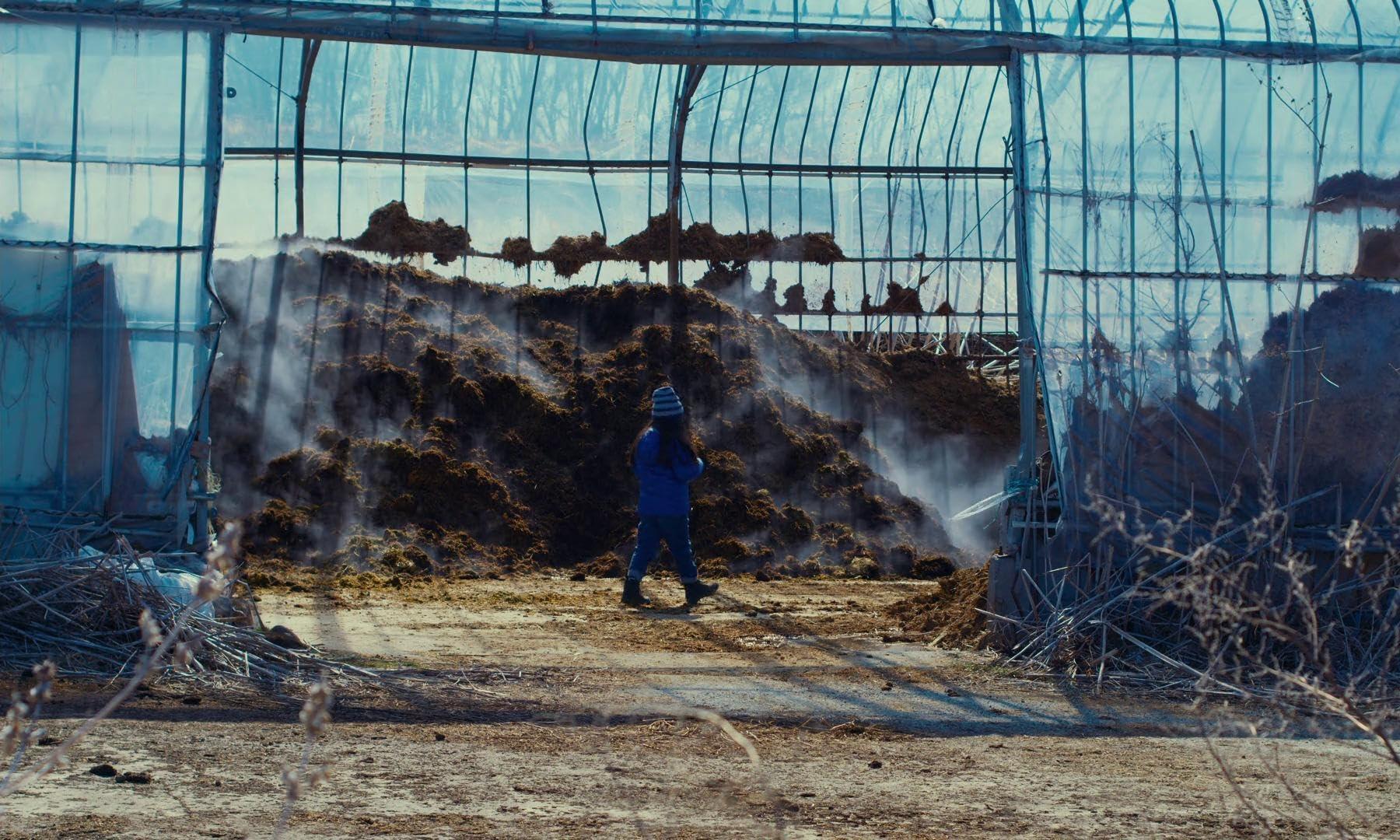
No movie this year got more out of its soundscape and original score than Evil Does Not Exist, which was originally conceived by director Ryusuke Hamaguchi as a companion piece to the haunting, string-drenched electronica of his countrywoman Eiko Ishibashi. (The movie was supposed to be a wordless 30-minute tone poem before Hamaguchi expanded it into an elliptical drama about a camping company’s mercenary incursion on an isolated forest community.) Ishibashi’s original composition was called “Gift,” but the music in Evil Does Not Exist is defined by eerie and pressurized sensations of withholding: It’s the sound of a world holding its beauty (and its secrets) close to the chest, where you can hear the submerged, anxious throb of nature itself.
6
All We Imagine as Light
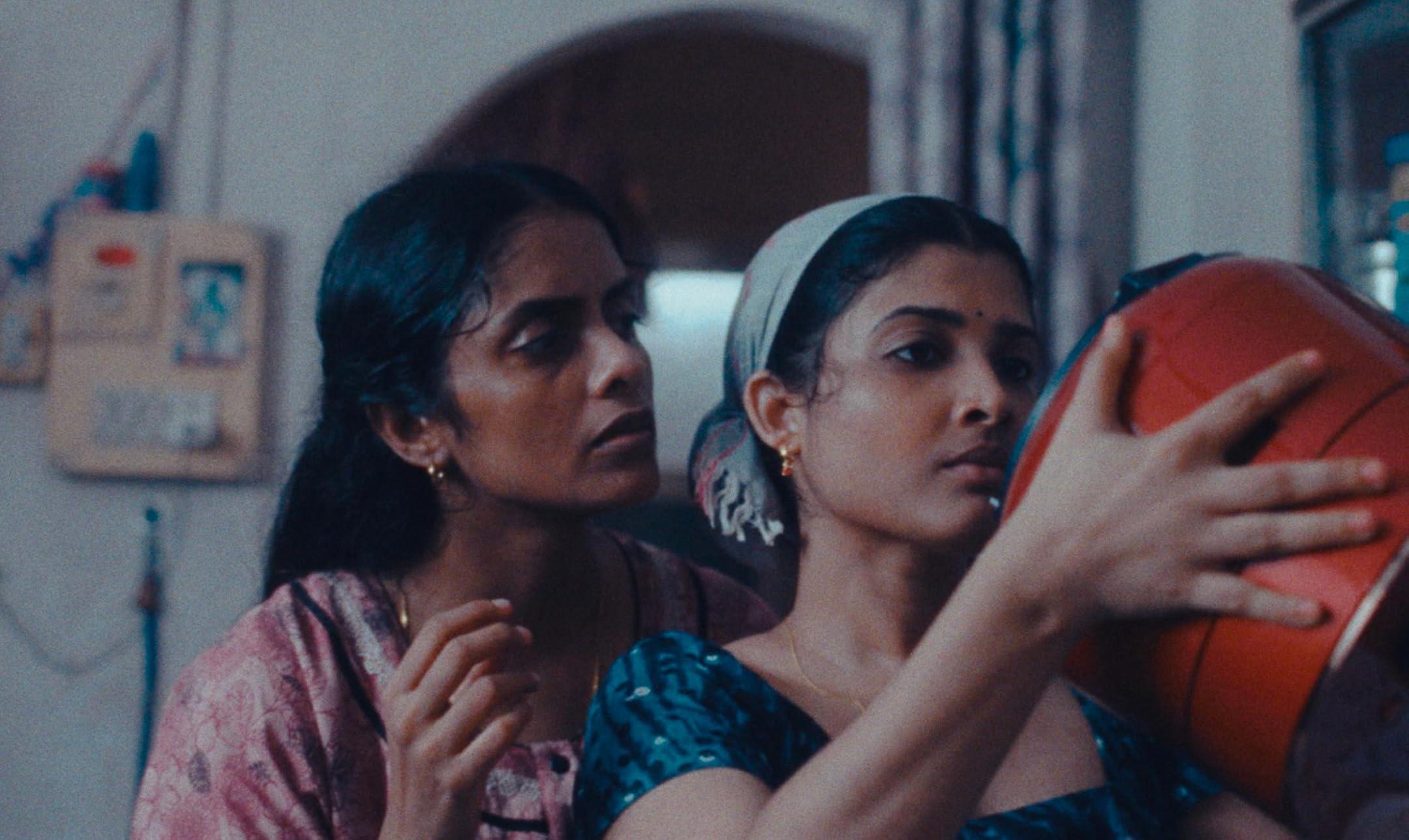
“You better get used to impermanence,” says one of the characters in Indian director Payal Kapadia’s gorgeous drama, which reverberates with exquisite and painful sensations of slippage; the women at the film’s center are physically and existentially stuck between stations, looking for a place where happiness might last. For all its potentially schematic elements—mismatched roommates, class-stratified romances, a migration from the anonymity of the city to the intimacy of the seaside—All That We Imagine as Light feels remarkably agile and free-form, a by-product of its maker’s background in documentary and a testament to storytelling instincts at once shrewder and more experimental than even the art-house norms. It’s absurd that Kapadia’s film won’t be competing for Best International Feature at the Oscars, but there’s a silver lining to its award season marginalization: Any movie with such a keen understanding of impermanence is built to last.
5
Nickel Boys
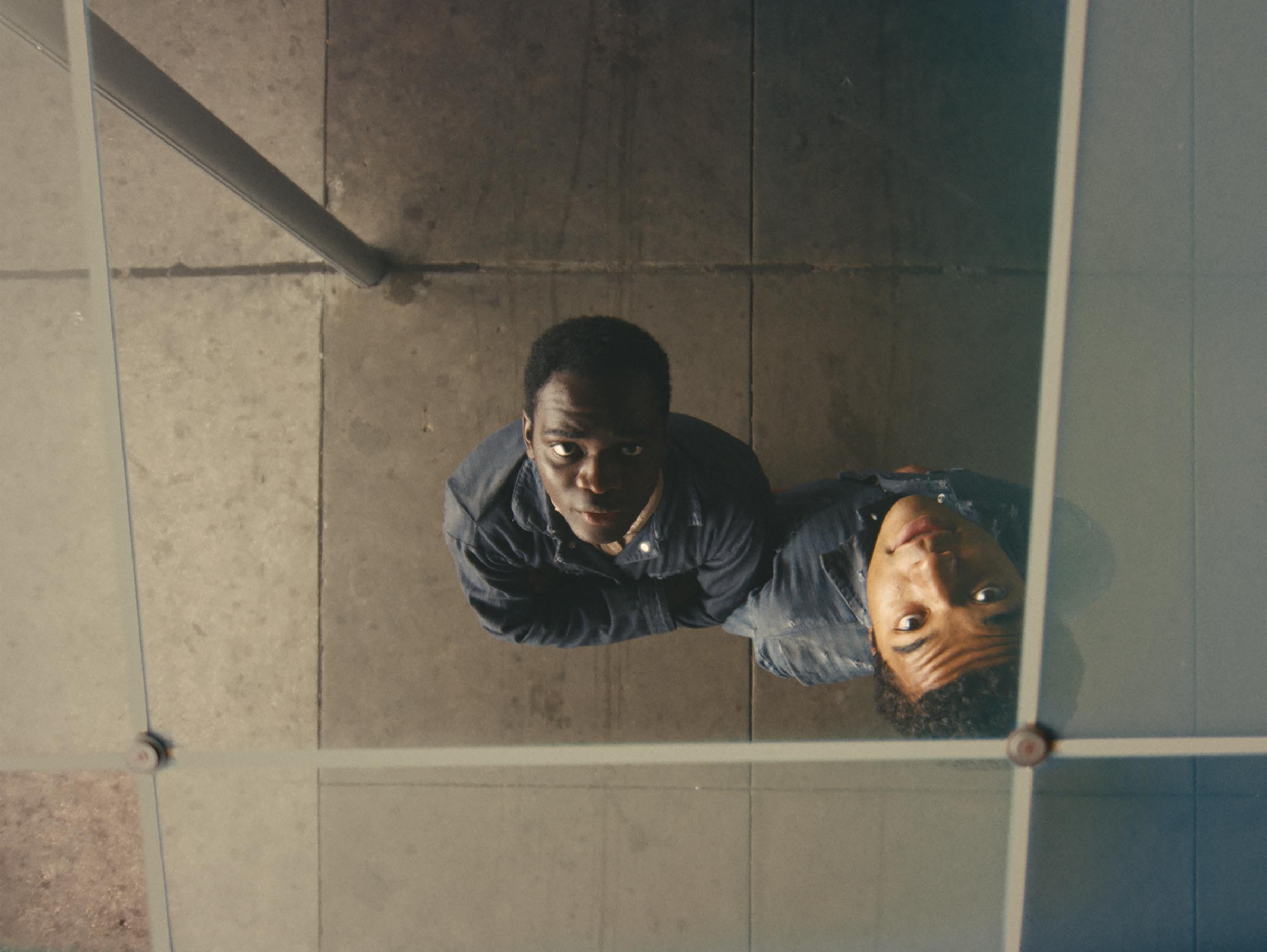
Five years after scoring an unexpected—and richly deserved—Oscar nomination for his impressionistic documentary Hale County This Morning, This Evening, former Georgetown Hoya point guard (look it up) RaMell Ross adapts Colson Whitehead’s scathing work of historical fiction about the abuses at Florida’s Dozier School for Boys with a mix of visionary innovation and rigorous technical finesse. Nickel Boys is not the first dramatic feature to be composed entirely of point of view shots—and the bold, unexpected integration of archival footage into the narrative deliberately undermines the concept anyway—but it’s hard to remember the last movie to play with subjectivity so interestingly and ambitiously. Ross’s style is predicated on an audacious and empathetic sense of immersion that not only complicates the representation of individual and institutional history (and racialized violence) but also opens up new ways of thinking about screen acting. (Ross recently earned Best Director props from the New York Film Critics Circle—a very good call.) The lead performances by Ethan Herisse and Brandon Wilson exist on a shared wavelength of intimacy and solidarity made possible by Ross’s ingenious formal conceit. The moment when they go from seeing each other separately to sharing a line of sight is exhilarating cinema.
4
The Beast
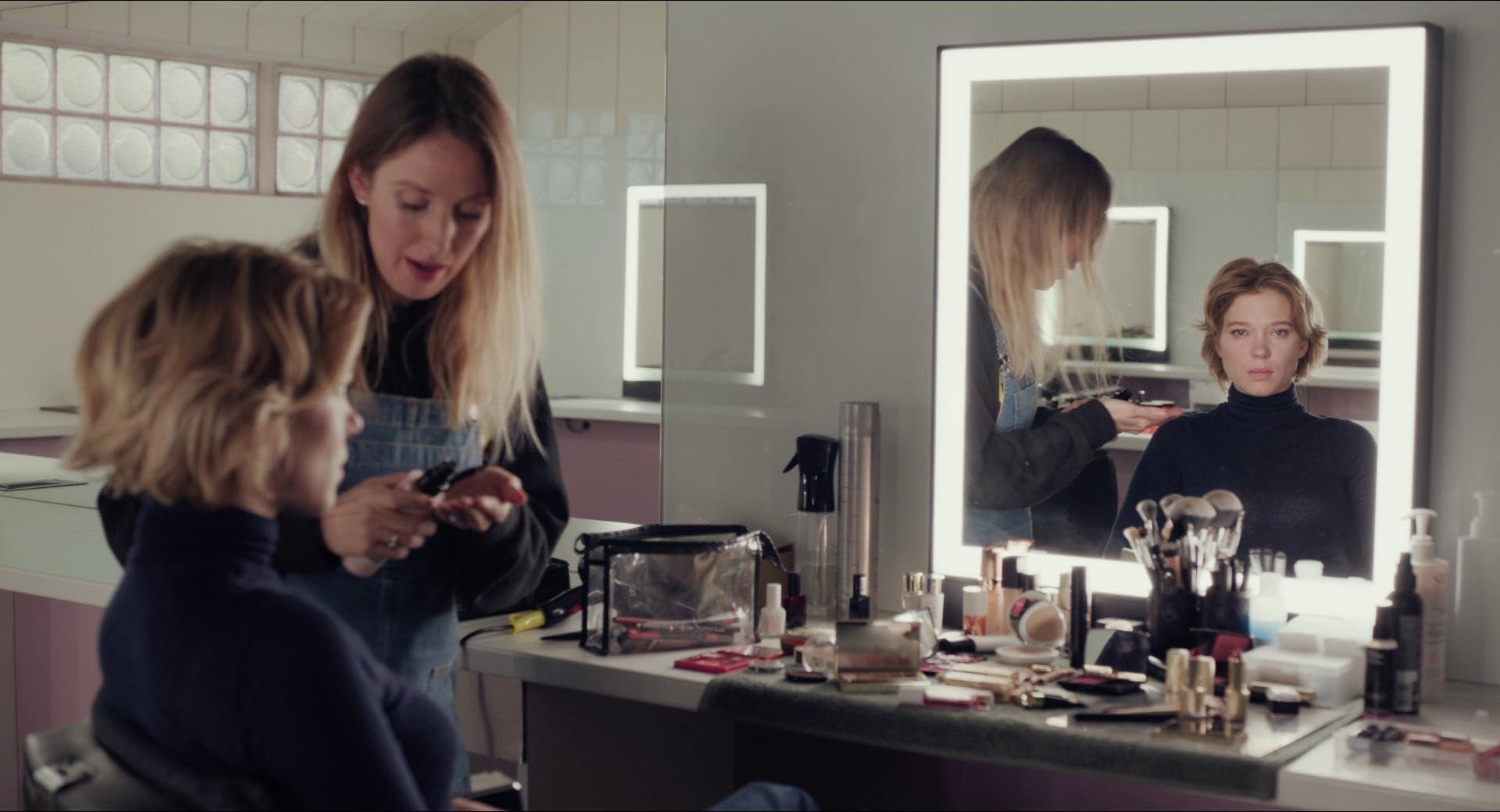
If Léa Seydoux didn’t exist, French cinema would have had to invent her. Like Juliette Binoche and Isabelle Huppert before her, she’s a trouper who loves working with demanding directors, like she’s a glamorously indestructible crash test dummy. Her tripartite performance in Bertrand Bonello’s mesmerizing sci-fi drama The Beast—playing the same character in the past, the present, and the future—is a tour de force. The more that the 22nd-century incarnation of Gabrielle tries to shake off the residue of her premillennial selves (and her infatuation with a similarly malleable figure embodied by George MacKay), the deeper she sinks into the miasma of eternal recurrence. Elegantly shot and judiciously edited in ways that privilege subliminal coherence over narrative logic, The Beast subsumes reference points at the extreme high and low ends of the pop cultural spectrum while carving out its own glittering niche as an art-house cult classic. The same recklessness that makes it hard to take its most bizarre touches seriously is also why an adventurous viewer has no choice but to try.
3
Do Not Expect Too Much From the End of the World
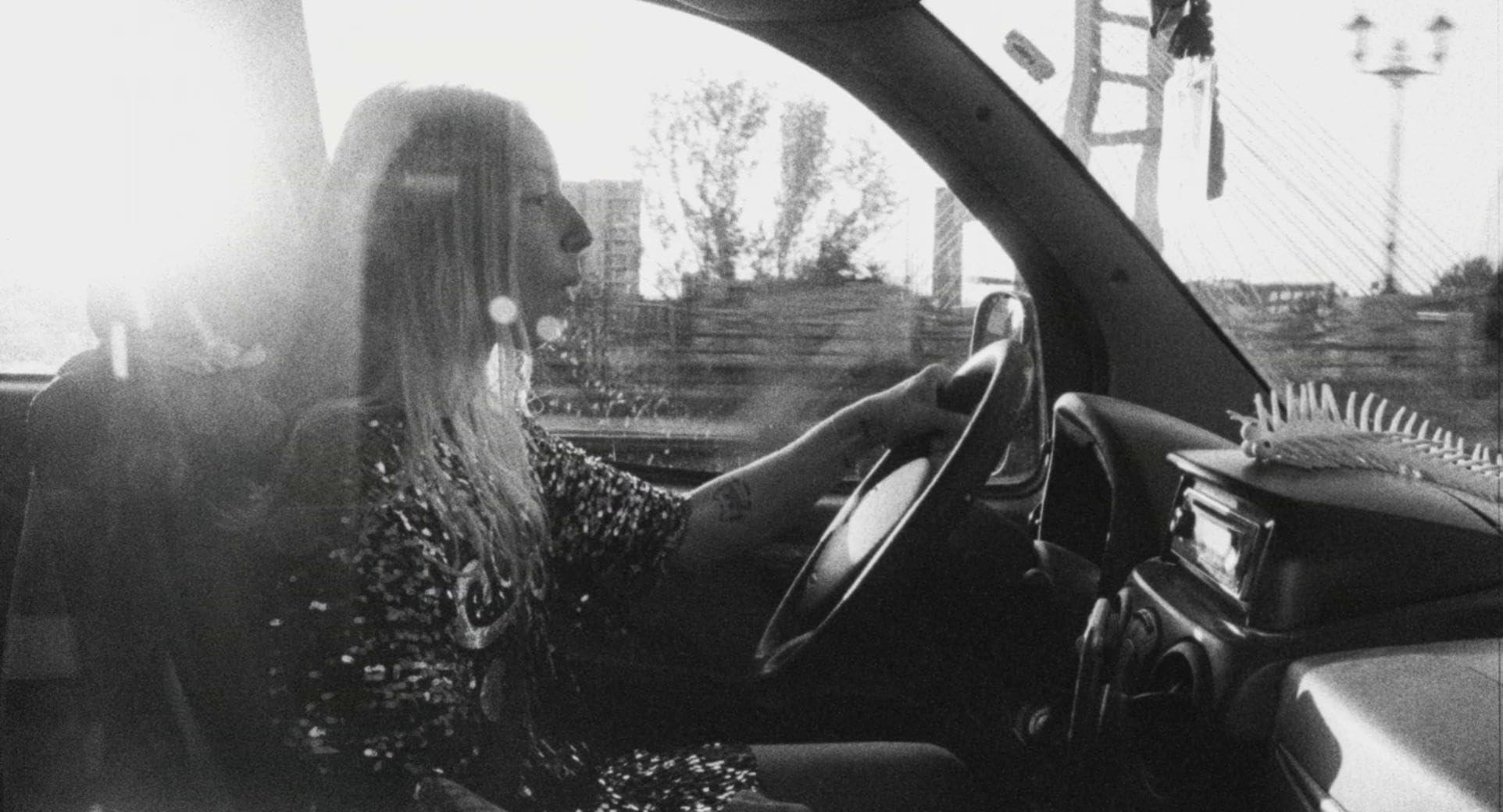
The Romanian director Radu Jude makes movies that are always pushing against something, whether it’s storytelling conventions, political correctness, or the comforts and pleasures of spectatorship itself. Forget Brady Corbet: Jude is our true brutalist, and he wears you down like a boxer. The funniest movies are often the ones that make you laugh in spite of yourself, and the biggest laughs in Do Not Expect Too Much From the End of the World burble up from some primal, bilious place beyond good taste. They stick in your throat and leave you hacking up a lung.
2
Juror No. 2
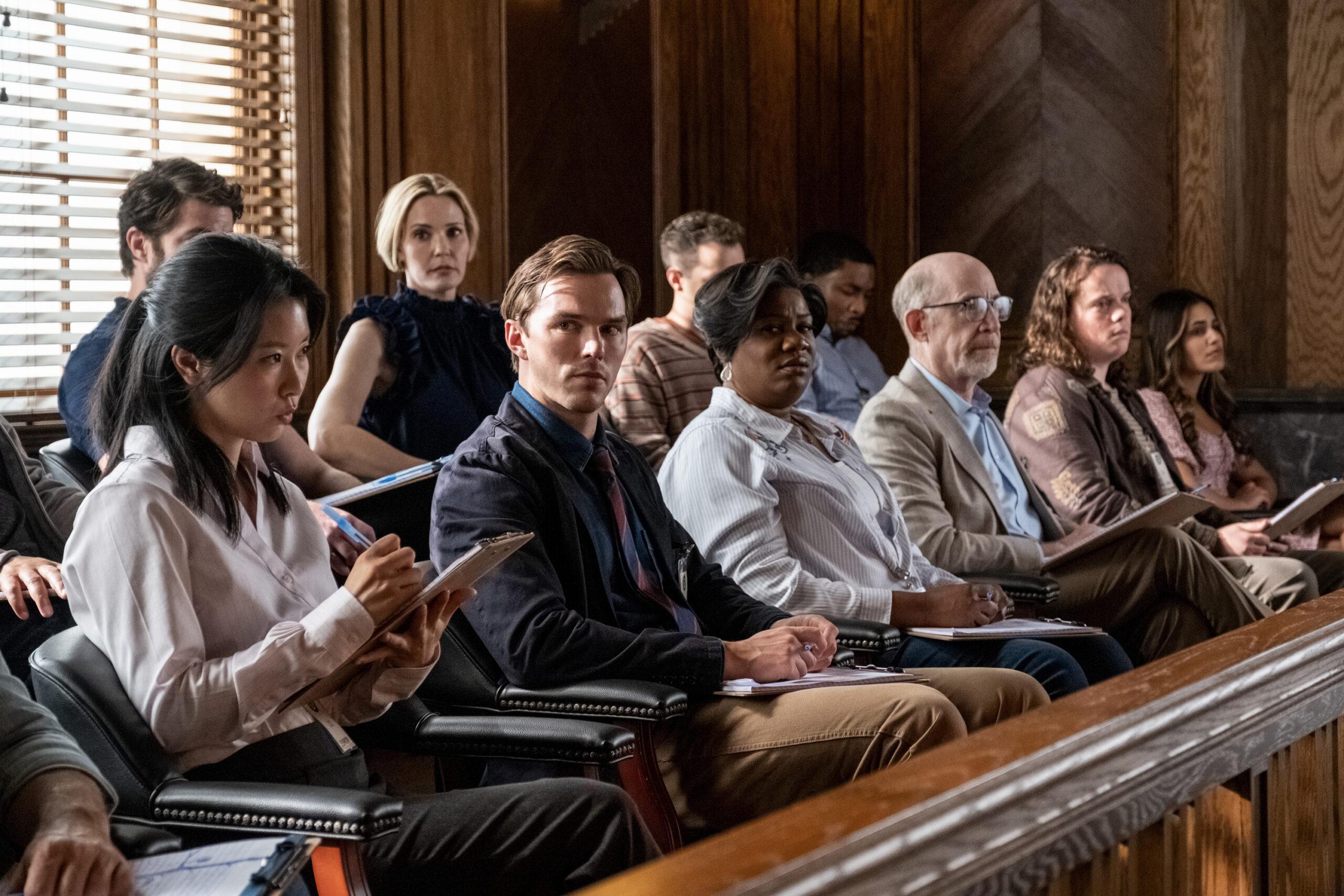
Vive la France, where Clint Eastwood’s terrific thriller has racked up some very healthy box office grosses since going into wide release in November. (Cut to Jean-Luc Godard bestowing good ol’ Clint with the honorary title of “Mr. Honky-Tonk Man.”) For reasons specifically Zaslavian, we’ll never know whether Juror No. 2 could have been a theatrical hit in the U.S., but hopefully its nearly across-the-board critical consensus will entice Americans to stream it over the holidays, when it could be effective as a proverbial lump of coal in their collective Christmas stocking. In a year when questions about the possibility—or futility—of ethical self-interest seem more nagging and unsettling than ever, Eastwood’s stark, unsentimental morality play stands tall for both its craftsmanship and metaphysics. Calling its style and structure old-fashioned is just another way of saying it’s timeless.
1
Red Rooms
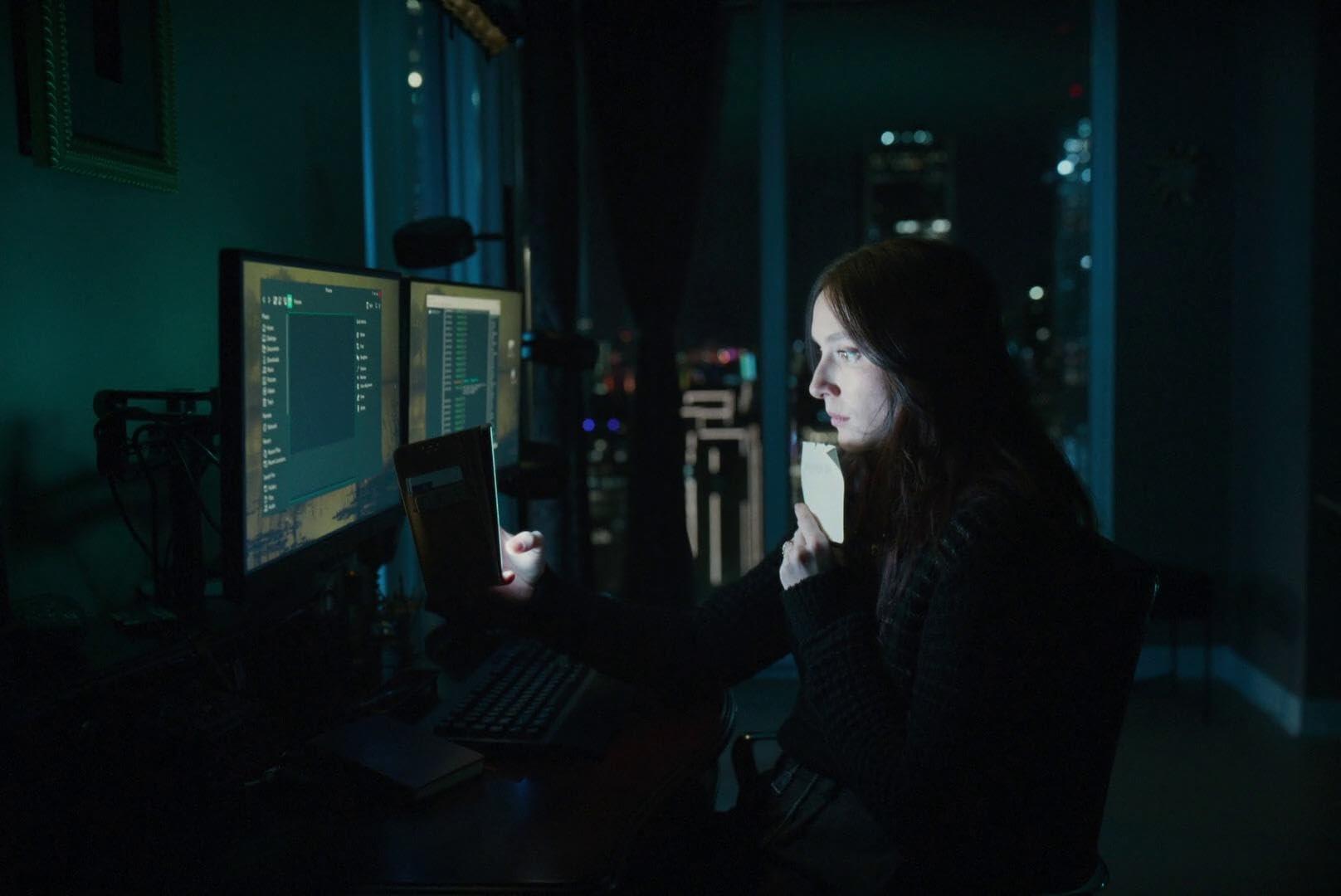
The first time that I saw French Canadian director Pascal Plante’s Red Rooms, I wasn’t convinced; the second time, I went on the record to say that it might be great. I haven’t stopped revisiting it since. What that says about me, I’m not sure. But it’s telling insofar as Red Rooms is a movie about the compulsion to watch—and rewatch—things that fascinate and unsettle us, and Juliette Gariépy’s (anti?)heroine is one of the most unforgettable cinematic voyeurs of her era—an extremely online shut-in whose screen name evokes a madwoman of myth, navigating the dark web in search of something brutal and elusive. The character’s motives are a mystery not only to others (and to us) but also to herself, and for all its Fincherian slickness and high-octane, nightmare-fuel imagery, Red Rooms is ultimately the film of the year because of how eloquently it speaks the vocabulary and syntax of enigma. I truly don’t know what to do with this singularly odd, unpleasant movie. I’d better watch it again.




